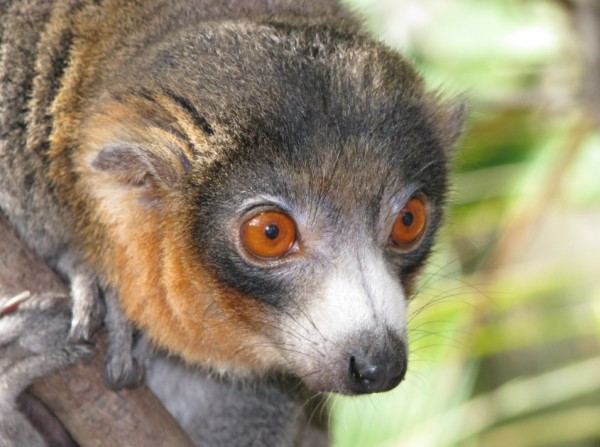By Ana Verayo, | May 08, 2016

Strepsirrhines, a suborder of primates, are characterized by a typically longer snout and wet nose compared to haplorhine primates.
Scientists announced that they have uncovered a "mother lode" or a rich source of half a dozen primate fossils in the southern region of China. With the help of this new discovery, researchers are able to gain a deeper understanding of this mysterious evolutionary puzzle, to answer the question, if the origin of mankind is from Africa, why are there human ancestors coming from Asia?
Like Us on Facebook
According to co-author of the study, paleontologist K. Christopher Beard from the University of Kansas, this has been an evolutionary enigma. There are a lot of evidence pointing to how the earliest anthropoids first emerged from Asia however, later during the Eocene period, these Asian anthropoids migrated to Africa and began to spread out and diversify in the region.
This anthropoid evolution that included monkeys, apes and humans, apparently shifted from Asia to Africa, with reasons that are still unknown. Before the dawn of modern day apes, monkeys and humans, anthropoids are the forerunners of all primates and humans.
With the discovery of these new fossils, this can now provide more evidence in the understanding of our evolutionary history. In this new study, these new findings determined that our primate ancestors from Asia were apparently wiped out during an extreme climate event some 34 million years ago. This occurred during the Eocene and the Oligocene epochs.
This massive climate and geological event is most likely caused by the re-arranging of the planet's tectonic plates, causing a sudden drop of temperature and humidity in many parts of the world. This in turn, caused major migrations across land masses, where ancient human populations became concentrated around the equator, in the tropical regions.
Beard explains that it is more ideal for primates to dwell in warm and wet habitats, so when the climate of the planet became cooler, the primates' environment became a very harsh place to live in that they eventually became extinct in North America and Europe. Some of them survived, where they thrived in Africa and Southern Asia.
He adds that if this global cooling did not transpire, the evolutionary arc of humans would have turned a different direction which could mean that anthropoids would continue to thrive in Asia as opposed to transitioning in Africa.
Today, humans are worried about warming climates, which is the opposite of what happened during the Eocene-Oligocene transition, a direct opposite of today's climate change. Then, the whole world was already so warm, that it cooled off, Beard explains.
Researchers point out that in this new study, primate ancestors were sensitive to the last global cooling, which can now be safely assumed that modern primates are just as sensitive to changing climates than other mammals. This new study is published in the journal Science.
-
Use of Coronavirus Pandemic Drones Raises Privacy Concerns: Drones Spread Fear, Local Officials Say

-
Coronavirus Hampers The Delivery Of Lockheed Martin F-35 Stealth Fighters For 2020

-
Instagram Speeds Up Plans to Add Account Memorialization Feature Due to COVID-19 Deaths

-
NASA: Perseverance Plans to Bring 'Mars Rock' to Earth in 2031

-
600 Dead And 3,000 In The Hospital as Iranians Believed Drinking High-Concentrations of Alcohol Can Cure The Coronavirus

-
600 Dead And 3,000 In The Hospital as Iranians Believed Drinking High-Concentrations of Alcohol Can Cure The Coronavirus

-
COVID-19: Doctors, Nurses Use Virtual Reality to Learn New Skills in Treating Coronavirus Patients







